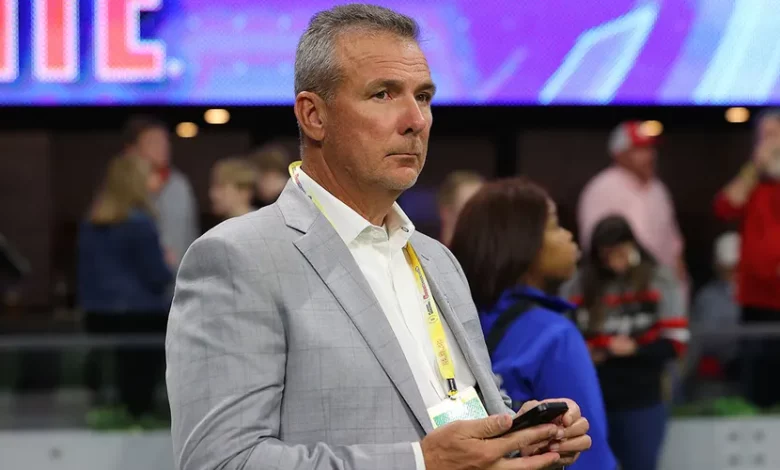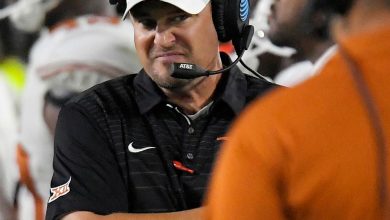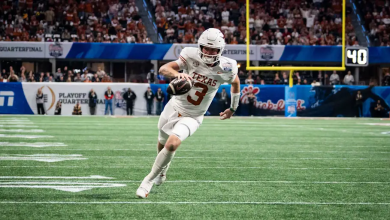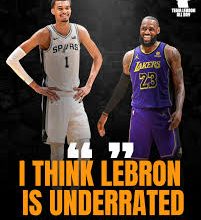Urban Meyer reacts to Nico Iamaleava leaving Volunteers due to NIL rift: ‘Tennessee is screwed’

In the ever-changing world of college football, few events make waves as much as a high-profile player transferring or leaving a program under controversial circumstances. One such event occurred recently when Nico Iamaleava, the highly regarded quarterback who committed to the Tennessee Volunteers, officially left the program, sparking significant discussions about the current state of college football, the transfer portal, and NIL (Name, Image, and Likeness) deals.
The shocking part of this saga isn’t just Iamaleava’s departure itself but the underlying reason for it. According to multiple reports, Iamaleava’s exit was primarily driven by a rift involving NIL dealings at Tennessee. This situation has raised critical questions about the long-term implications for both Iamaleava’s career and the future of the Volunteers program. Amid all of this, former Florida Gators and Ohio State Buckeyes head coach Urban Meyer, known for his blunt and often provocative commentary, weighed in on the situation with a rather blunt remark: “Tennessee is screwed.”
But why did Meyer, a coach who built his career on championship-caliber teams and leadership, say this about a program as storied as Tennessee? What does it say about the state of college football as NIL continues to reshape the sport? Let’s dive deeper into the situation, Meyer’s reaction, and what this means for the future of college football.
The Rise of Nico Iamaleava and His Impact on Tennessee
Nico Iamaleava’s recruitment was nothing short of spectacular. As one of the most highly rated quarterbacks in recent memory, Iamaleava was a coveted five-star prospect with an arm that wowed scouts, a natural football IQ, and a winning mentality. His decision to commit to Tennessee was seen as a major coup for the Volunteers. Under head coach Josh Heupel, who is known for his high-octane offense and quarterback development, Iamaleava was expected to be the program’s future — a potential game-changer who could elevate Tennessee back to the top of the SEC.
Iamaleava had the talent to step in and immediately make an impact. His recruitment generated a frenzy, as his combination of size, athleticism, and skill made him a perfect fit for Heupel’s up-tempo, pass-heavy offensive system. Tennessee fans were buzzing with excitement at the thought of Iamaleava leading the team for the next several years, and many believed he was the missing piece for a Volunteers team that had shown flashes of greatness in recent seasons.
But despite his potential and the significant hype surrounding his arrival, things took a turn when Iamaleava’s name appeared in connection with the ongoing debate surrounding NIL compensation. What seemed to be a story of a young quarterback coming in to reshape a program turned into one of the most intriguing and controversial stories in college football in recent memory.
The NIL Rift: What Went Wrong?
NIL (Name, Image, and Likeness) deals have become a driving force in college athletics, particularly in football and basketball. For athletes like Iamaleava, who are viewed as potential stars, NIL has introduced a new layer of complexity to recruitment and player retention. NIL allows players to sign endorsement deals, receive compensation for their personal brand, and profit from their name, image, and likeness while still maintaining their college eligibility. However, the rapid growth of NIL has led to a number of complications, with schools, coaches, and players often caught in a tangled web of rules, regulations, and competing interests.
In Iamaleava’s case, reports suggest that his decision to leave Tennessee was influenced by a dispute over the structure and expectations surrounding his NIL deals. The quarterback was reportedly unhappy with the way his NIL opportunities were handled by the Volunteers’ collective, a situation that ultimately created tension between him and the program. Sources close to the situation have indicated that Iamaleava felt his NIL compensation did not align with the promises made during his recruitment. While it’s unclear exactly what promises were made, it is clear that the disparity between expectations and reality played a significant role in his decision to leave.
This development has sparked broader conversations about the growing influence of NIL in college football. As players are now able to make significant money while in school, it has shifted the power dynamics within programs, often leading to internal friction. Some programs have embraced the shift, creating structures to facilitate NIL deals, while others have struggled to keep up. For Tennessee, the inability to manage this aspect of college football may have cost them one of their most prized recruits in recent history.
Urban Meyer’s Reaction: “Tennessee is Screwed”
Urban Meyer, who has coached at some of the most prestigious programs in college football, including the University of Florida and Ohio State, didn’t mince words when it came to the news of Iamaleava’s departure. His blunt assessment of Tennessee’s situation, “Tennessee is screwed,” reflected his belief that the Volunteers’ inability to handle the complexities of NIL could have far-reaching consequences for the program.
Meyer, a two-time national champion and one of the most successful coaches in modern college football, has seen firsthand how the landscape of the sport has changed over the years. When he made that comment, he wasn’t just speaking about Iamaleava’s departure — he was speaking to a larger, more systemic issue that many programs are facing in the wake of NIL’s rise.
In Meyer’s view, Tennessee’s struggles with NIL are emblematic of the challenges many programs will face as the NCAA navigates the rapidly evolving world of college sports. “You can’t just focus on the football field anymore,” Meyer said. “The business side of college football is just as important now. And if you’re not managing NIL effectively, it’s going to hurt you in ways that people don’t even realize.”
Meyer’s comments underscore the reality that college football has entered a new era, one where players have more leverage than ever before. In the past, top recruits might have been swayed by the traditional pillars of college football — coaching, facilities, and a program’s track record of success. Now, NIL has become an additional and powerful motivator in the recruiting process. If programs don’t offer the right opportunities for players to profit from their likeness, they risk losing out on some of the most talented athletes in the country.
For Tennessee, this means that if they can’t get their NIL structure in order, they could see more top talent leave the program in favor of schools that are better positioned to manage this new reality.
What Does This Mean for Tennessee’s Future?
The loss of Iamaleava is a significant blow to Tennessee’s long-term plans. As the Volunteers continue to rebuild under Heupel, they had hoped that the five-star quarterback would be the centerpiece of their offense for the next several years. Now, with Iamaleava’s departure, Tennessee must regroup and reassess its quarterback situation.
For Heupel, who has built his reputation as an offensive mastermind, the challenge will be to maintain the program’s offensive identity without the top-tier talent of Iamaleava. Joe Milton III, the current backup quarterback, will likely be the next man up, but Milton has faced challenges in consistently executing Heupel’s high-flying offense. Whether Milton can develop into a reliable starter remains to be seen, and Tennessee will undoubtedly be looking for other quarterbacks, either through the transfer portal or in recruiting, to fill the void left by Iamaleava’s exit.
Moreover, the situation raises questions about Tennessee’s ability to manage NIL in the future. The Vols have shown they can compete in recruiting, but this experience highlights how critical it is to adapt to the new dynamics of college football. If Tennessee is unable to provide the right NIL incentives for top recruits, they could face even more challenges in securing elite talent moving forward.
The Bigger Picture: The Future of NIL in College Football
The Iamaleava saga is a stark reminder of how NIL is shaping the future of college football. What once was a sport driven primarily by tradition, coaching, and player development is now being influenced by new financial forces. The power dynamic in recruiting has shifted, and players are no longer solely motivated by scholarships or the chance to play for a prestigious program. They are also evaluating the potential to capitalize on their image and likeness while still in school.
As college football continues to evolve, the question is whether programs like Tennessee will be able to navigate this new world successfully. While some schools are ahead of the curve in terms of NIL, others — including Tennessee — have struggled to find their footing. The fallout from Iamaleava’s departure may only be the beginning, and programs across the country will be forced to reckon with the impact of NIL on their ability to recruit and retain top talent.
Urban Meyer’s blunt assessment of Tennessee’s situation — “Tennessee is screwed” — speaks to the growing concerns around NIL and its influence on college football. With one of the top recruits in the nation walking away due to NIL-related issues, Tennessee must now take a hard look at how it handles these new dynamics. The Volunteers face a significant challenge moving forward, both in terms of player development and recruiting, as they navigate this uncharted territory. The question remains: Will Tennessee adapt to the new era of college football, or will it be left behind as other programs continue to thrive in the NIL age? Only time will tell.









